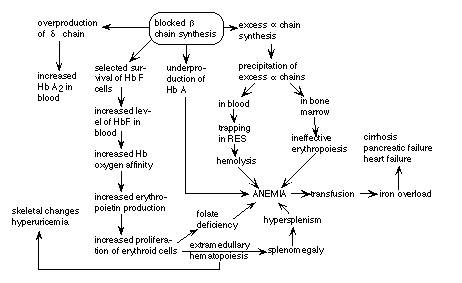 |
 |
|
|
|
|
|
| Treatments
Prevention
Treatments for thalassemias depend on the type and severity of the disorder. People who are carriers or who have alpha or beta thalassemia trait have mild or no symptoms. They need little or no treatment. Doctors use three standard treatments for moderate and severe forms of thalassemia. These include blood transfusions, iron chelation (ke-LAY-shun) therapy, and folic acid supplements. Other treatments have been developed or are being tested, but they're used much less often. Blood Transfusions
If you have hemoglobin H disease or beta thalassemia intermedia, you may need blood transfusions on occasion. For example, you may need this treatment when you have an infection or other illness, or when your anemia is severe enough to cause tiredness. If you have beta thalassemia major, or Cooley's anemia, you need regular blood transfusions (often every 2 to 4 weeks). These will help you maintain normal hemoglobin levels and red blood cell numbers. Blood transfusions allow you to feel better, enjoy normal activities, and live into adulthood. Blood transfusions are lifesaving, but they're expensive and carry a risk of transmitting infections and viruses (for example, hepatitis). However, this risk is very low in the United States because of careful blood screening. Iron Chelation Therapy
To prevent this damage, iron chelation therapy is needed to remove excess iron from the body. Two medicines are used for iron chelation therapy. Deferoxamine is a liquid
medicine that's given slowly under the skin, usually with a small portable
pump used overnight. This therapy takes time and can be mildly painful.
Side effects include loss of vision and hearing.
Other Treatments
Blood and Marrow Stem Cell
Transplant
A stem cell transplant is the only treatment that can cure thalassemia. But only a small number of people who have the severe form of the disorder are able to find a good match among donors and have the risky procedure. Possible Future Treatments
Researchers also are studying ways to trigger a person's ability to make fetal hemoglobin after birth. This type of hemoglobin is found in fetuses and newborns. After birth, the body switches to making adult hemoglobin. Making more fetal hemoglobin may make up for the lack of healthy adult hemoglobin. Treating Complications
An important part of managing thalassemias is treating complications. Treatment may be needed for heart or liver diseases, infections, osteoporosis, and other problems. |
|
|
|
|
|
|
|
||||
 |

| Privacy Policy for LiveIndia.Com |

Multi Dimensional Entertainment magazine from INDIA |
 |